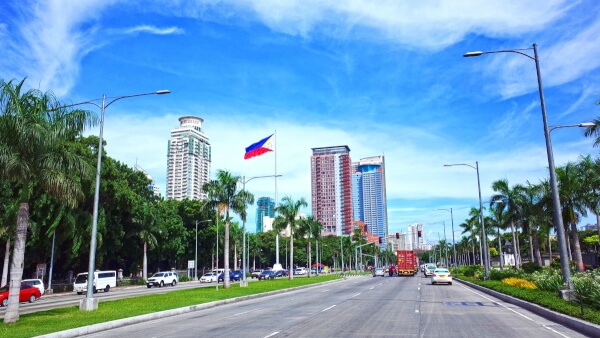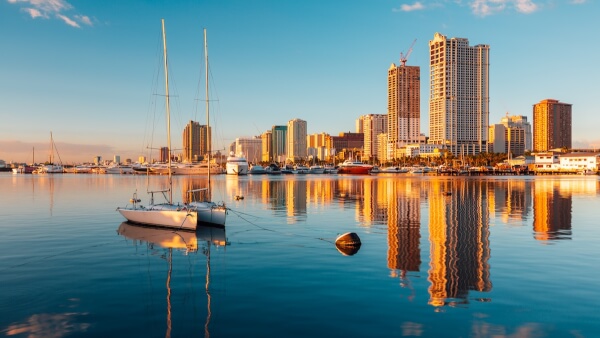Selling property in the Philippines: Taxes for Americans
What taxes do you need to pay when selling property in Philippines? Have a look at our guide to learn all about types, deadlines, and special considerations.

The Philippines is a popular destination for overseas travellers. The country’s healthcare is considered good by international standards, and government reforms in the past 2 decades are pushing the country closer to universal healthcare. Foreigners qualify for this coverage, and this might be a great reason to consider the Philippines for long-term visit or a permanent relocation.
This guide should help give you a better overview of the healthcare system and insurance options in the Philippines, and how to get healthcare coverage when you get there.
The Philippines has a mixture of both a public and private medical system. The government offers affordable public health insurance through Philippine Health Insurance Corp (PhilHealth)
There’s no formal set of deductibles or copays with PhilHealth, but healthcare providers will bill patients for the balance their insurance doesn’t cover. Many times this will need to be paid up front, or before you leave the facility.
Health Management Organizations (HMOs) offer additional options for individuals or companies looking for self-financed or private plans. They act as liaisons between the company and end user, and will sometimes partner directly with healthcare providers to provide affordable rates.
The Philippine government is making progress towards universalising healthcare. That means, theoretically, everyone will be covered for almost every type of medical procedure. This health insurance scheme is government-run and funded through subsidies as well as contributions from employers and employees.
By law, the country must offer national health service to all 94 million citizens. As of 2016, however, there were still 8 million people uninsured. In 2014, it became mandatory for all citizens over the age of 60 to obtain coverage.
There isn’t a law stating that expats need to have health insurance while living in the Philippines. However, without insurance, you might end up paying high fees for treatment.
It’s not mandatory for foreigners to have health insurance. You won’t incur any penalties, but health insurance is highly recommended for all expats. Medical emergencies can happen anytime. Foreigners currently have access to several affordable options under the national PhilHealth. Private health insurance coverage is also widely available.
Private health insurance gives those insured access to private healthcare networks, but offers a bit more flexibility than HMOs. In the Philippines, private insurance is usually bought by self-employed or freelance workers, or companies that provide private options to their employees. Premiums are fully paid by the insured. Immediate family members can also be on the plan, but this may come at an additional cost. Private insurers offer many benefits and features. Their facilities will probably meet high international standards.
Benefits likely include:
PhilHealth provides various plan options, depending on personal factors like income and age. It was set up in 1995 to provide universal coverage at affordable rates. You can pay for membership through periodic premiums, or pay one lump sum for lifetime membership.
The PhilHealth network consists of both public and private facilities. Coverage administered by PhilHealth includes comprehensive medical benefits such as:
There are several HMO options in the Philippines. HMOs are like private providers, except they give you access to certain doctors within a certain network. Plans are usually comprehensive and customisable and run on a reimbursement basis. HMOs administer programs such as:
Some tourists or expats may choose to have temporary travel insurance that covers medical care and assistance. Depending on your situation and how long you intend to stay in the Philippines, this type of insurance might be the best option for you.
Here are some plans and their expected cost:
| Name / Type | Average Cost (per year) |
|---|---|
| Phil Health, Members in the Informal Economy Plan (Public) | ₱2,400-3,600 |
| Medicard (Private) | ₱3,600 |
| Philippine Prudential Health Protect Plus (Private) | ₱3,300 - 5,000 |
| SUN Healthier Life Plan (Private) | ₱9,900 |
You may need to think ahead to ensure your medical needs are met when you’re overseas. This could mean paying for your health insurance ahead of time. Wise can help you reduce costs when transferring money abroad. Wise’s Borderless account can help you hold and manage your money between multiple currencies so you have it ready when you need it the most. Which means if you are surprised with hospital bills or a monthly health insurance payment, you can send your money to the Philippines just when you need it the most.
All citizens of the Philippines and expats alike have access to PhilHealth. You can learn more on PhilHealth’s website about the plans you qualify for. If you have a private plan, your provider will be able to discuss the specific plans and what scenarios you are covered under.
To sign up for PhilHealth:
If you’re getting private health insurance, you should check with your specific provider about enrollment details.
If you use PhilHealth you’ll be issued a PhilHealth ID card. This is a government-issued ID and you can also use it to apply for other services in the country, such as opening a bank account. You can use your PhilHealth ID number to pay for your insurance premium contributions.
If you’re going the private health insurance route, you’ll need to check with your specific provider about details of a health card and how to get it.
Here are some of the largest insurance companies you may want to consider:
These comparison sites can help you choose which provider and plan is best for you:
The quality and affordable healthcare in the Philippines is just another reason to consider this country for your home away from home.
Follow this guide to ensure your insurance meets your overseas healthcare needs.
Sources used:
Sources checked on 08-November 2019.
*Please see terms of use and product availability for your region or visit Wise fees and pricing for the most up to date pricing and fee information.
This publication is provided for general information purposes and does not constitute legal, tax or other professional advice from Wise Payments Limited or its subsidiaries and its affiliates, and it is not intended as a substitute for obtaining advice from a financial advisor or any other professional.
We make no representations, warranties or guarantees, whether expressed or implied, that the content in the publication is accurate, complete or up to date.

What taxes do you need to pay when selling property in Philippines? Have a look at our guide to learn all about types, deadlines, and special considerations.

Everything you need to know about international schools in Manila, Philippines.

Want to learn about property taxes in the Philippines? This guide covers types of property taxes and how they are calculated to help you navigate the process.

In this article, discover essential guidance for moving to the Philippines from the USA. Navigate visas, logistics, and cultural adjustments seamlessly.

To get you started, here’s a beginners guide to the laws concerning dual citizenship in the Philippines.

When you’re expecting a newborn, life can be both wonderful and stressful at the same time. This is especially true if you’re on leave as a foreigner or...